So, let's move on to a little script tip: I have created various character and paragraph formats here. You can see that here, a huge palette.
But what sometimes happens is that you say that everything looks great, but you change something, for example: I'd like to quickly italicize this one word.

If you don't use a character or paragraph format specifically for italic styles, but simply change it in the text, you will now see a plus [+] here.
This means that there is a deviation here - and the location of the deviation is also displayed immediately. You can now also delete the deviation with Alt and click.
Or you could now say, I want to save the whole thing here as a new paragraph format. To do this, simply duplicate the format with the right mouse button and then OK!
Now I can right-click on the copy of my paragraph format that I have just created in the paragraph format paneland redefine the format. Then it is adjusted accordingly.
So once either not italicized or italicized. I can now rename it from "04.1 body text standard" to "04.1 body text italic". Whatever you want, it's no problem at all.
But of course it's always tedious to find out which paragraph formats or character formats no longer match. This means that if I click on the heading here, for example, I can also see from the plus [+], ...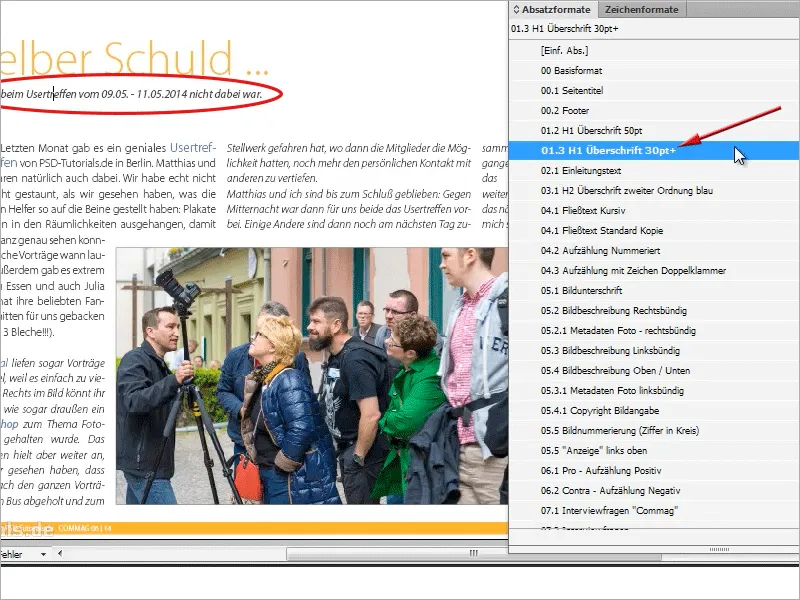
... that something has been changed here, and there is a script that immediately shows me where there are discrepancies.
I would like to recommend this to you.
I'll go to a website and enter "show hide local formatting script" in the search.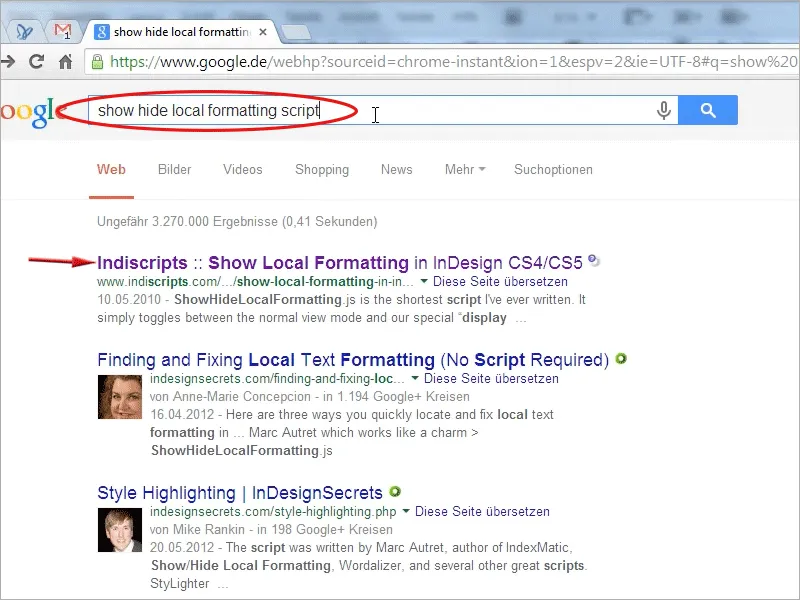
There are then various pages that offer this script.
I took the first hit here and it explains exactly what this script does, i.e. the paragraphs or words in the text are simply underlined in red or even almost crossed out, and I immediately see: aha, there's a deviation here!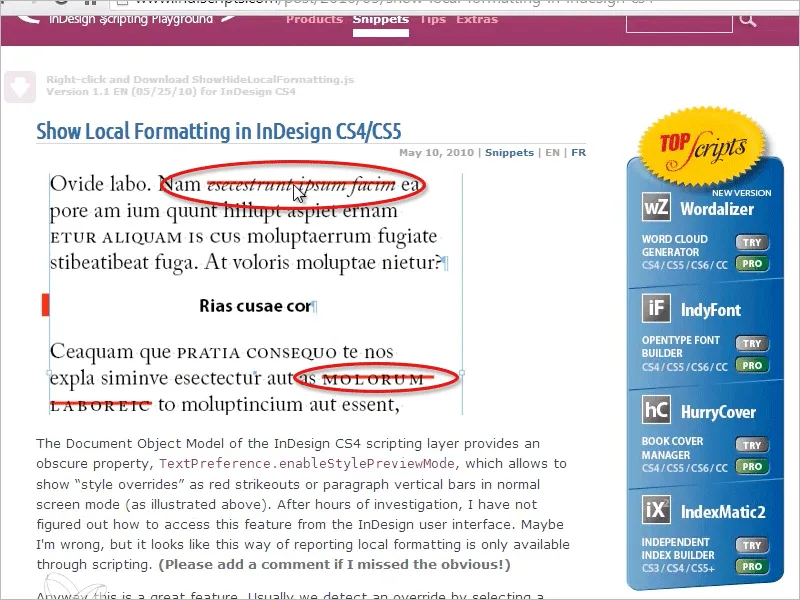
Yes, and basically you can download it straight away from this page.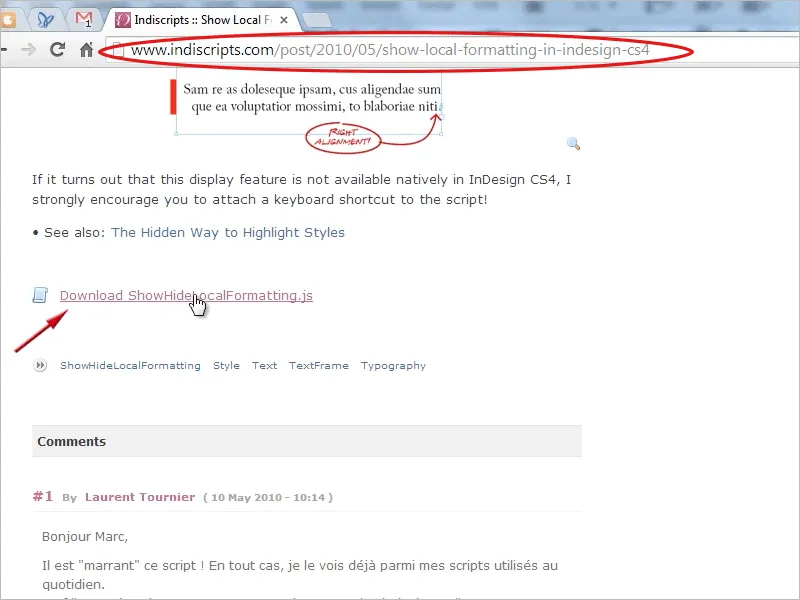
That's what I did. What's also important is that it's copied to the right directory ... -.webp?tutkfid=91530)
... into the scripts panel directory. Depending on which operating system or version you have, the path will be different. Otherwise you can simply search for .jsx files. There may already be scripts in there or just look for Scripts Panel, it must be there.
Or you can simply go into the scripts panelunder Users>Scripts and then you can click on any script, for example, right mouse button>Display in Explorer,...
... then the path is displayed again in the address bar. You can then copy the path accordingly or paste the script here. It couldn't be easier!
If the script is now in the right folder, then I have it in the scripts paneland I can simply double-click on it:
And then it goes to my normal view here and I can immediately see that there are deviations where the red line is crossed out. One more click on this script and the red underline would be gone again.
So now I don't have to search for a long time, but can quickly display these deviations. That's actually brilliant, isn't it? And this script is really only a few lines of code, it's unbelievable. I click on the script in Explorer. This is everything: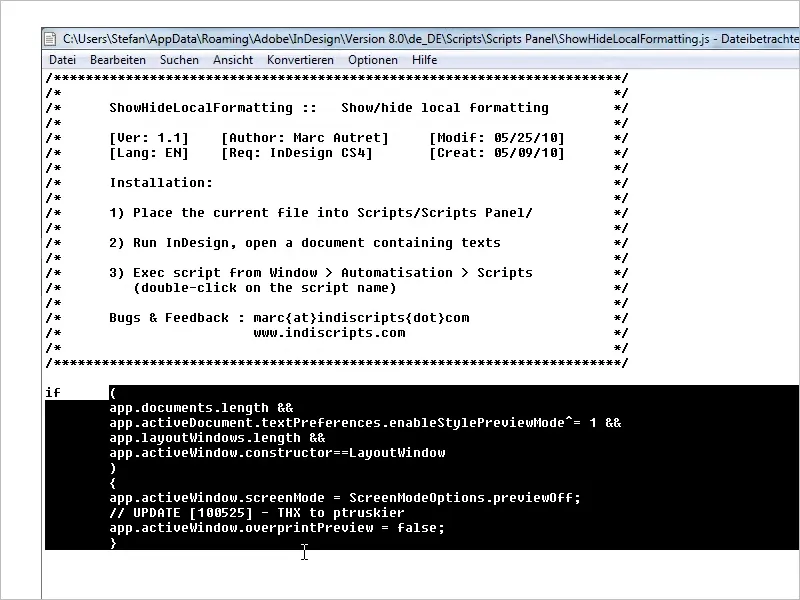
These few lines of code save you a lot of time!
So, I hope this little tip helps you find these discrepancies.


